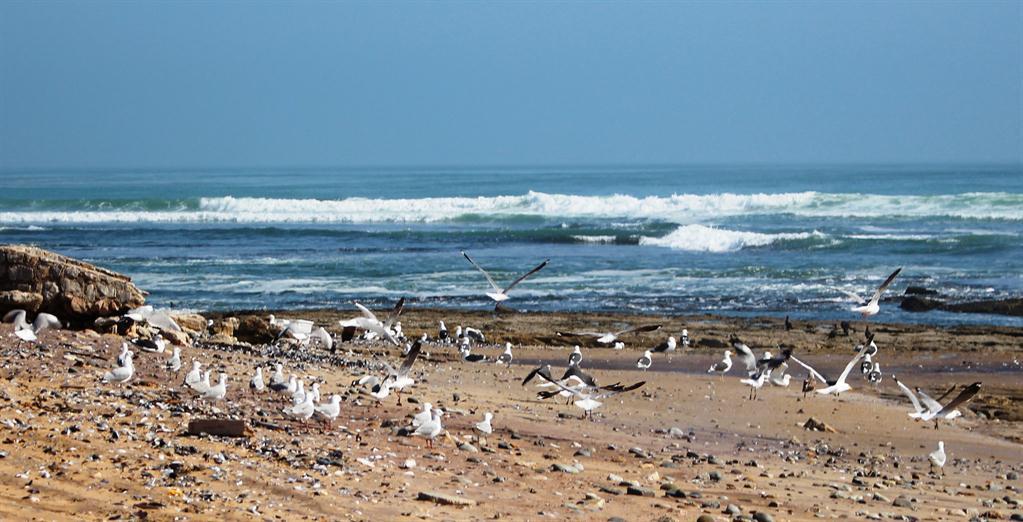Oceans under threat
Marine resources Bernhardt Esau has condemned incidences of overfishing in international waters, saying these activities, carried out by distant fishing nations, should by totally banned.
Esau listed climate change, illegal, unreported, and unregulated (IUU) fishing and harmful fishing subsidies as the three major challenges facing the ocean, at a World Oceans Day celebration in Kuisebmond on Saturday.
He said IUU fishing threatens livelihoods and food security, exacerbates poverty, is harmful to fish stocks and distorts competition.
This is the major reason why African countries cannot develop their own fleets, Esau said.
According to the Food and Agriculture Organisation (FAO), IUU fishing takes advantage of corrupt administrations and exploits weak management regimes, in particular those of developing countries lacking the capacity and resources for effective monitoring, control, and surveillance (MCS).
IUU fishing occurs both on the high seas and in areas within national jurisdictions.
Fisheries resources available to bona fide fishers are removed and this can lead to the collapse of local fisheries, with small-scale fisheries in developing countries proving particularly vulnerable.
Celebrated under the theme 'Gender and Ocean', World Oceans Day was an opportune time to consider the need to increase women participation in marine affairs, Esau said.
“Only 2% of global seafarers and 38% of marine scientists are women. Gender inclusivity is required in all blue economy activities, which are centred on the ocean,” he said.
Esau further welcomed local clean-up efforts, an initiative to reduce seabird mortalities implemented in 2007 and the introduction of a compliance certificate for fishing vessels by the Albatross Task Force (ATF).
Blomeha fishing vessel crew members received their ATF compliance certificate this year.
“This is the way to go and all must join these efforts. The ATF initiative has a 98% degree of success and also ensures compliance to regulations.
The ladies from the Memelitu Mbapo group, which manufactures the tori lines used by vessels in the demersal/longline industry also need to be recognised,” Esau said.
The minister said Namibia was part of global efforts to provide a safe and secure ocean environment and reiterated the country's commitment towards this cause.
“Namibia signed the Agreement on Port State Measures (PSMA), which is the first binding international agreement to specifically target illegal, unreported and unregulated (IUU) fishing. The United Nations is preparing a conference on securing a sustainable oceans' economy in 2020 and we want to shape that debate. All in the country benefitting from the ocean should contribute to map out our position. We must do our bit to ensure the health and sustainability of the ocean,” Esau added.
He highlighted that the blue economy concept is key to food security, national development and poverty eradication.
Otis Finck
Esau listed climate change, illegal, unreported, and unregulated (IUU) fishing and harmful fishing subsidies as the three major challenges facing the ocean, at a World Oceans Day celebration in Kuisebmond on Saturday.
He said IUU fishing threatens livelihoods and food security, exacerbates poverty, is harmful to fish stocks and distorts competition.
This is the major reason why African countries cannot develop their own fleets, Esau said.
According to the Food and Agriculture Organisation (FAO), IUU fishing takes advantage of corrupt administrations and exploits weak management regimes, in particular those of developing countries lacking the capacity and resources for effective monitoring, control, and surveillance (MCS).
IUU fishing occurs both on the high seas and in areas within national jurisdictions.
Fisheries resources available to bona fide fishers are removed and this can lead to the collapse of local fisheries, with small-scale fisheries in developing countries proving particularly vulnerable.
Celebrated under the theme 'Gender and Ocean', World Oceans Day was an opportune time to consider the need to increase women participation in marine affairs, Esau said.
“Only 2% of global seafarers and 38% of marine scientists are women. Gender inclusivity is required in all blue economy activities, which are centred on the ocean,” he said.
Esau further welcomed local clean-up efforts, an initiative to reduce seabird mortalities implemented in 2007 and the introduction of a compliance certificate for fishing vessels by the Albatross Task Force (ATF).
Blomeha fishing vessel crew members received their ATF compliance certificate this year.
“This is the way to go and all must join these efforts. The ATF initiative has a 98% degree of success and also ensures compliance to regulations.
The ladies from the Memelitu Mbapo group, which manufactures the tori lines used by vessels in the demersal/longline industry also need to be recognised,” Esau said.
The minister said Namibia was part of global efforts to provide a safe and secure ocean environment and reiterated the country's commitment towards this cause.
“Namibia signed the Agreement on Port State Measures (PSMA), which is the first binding international agreement to specifically target illegal, unreported and unregulated (IUU) fishing. The United Nations is preparing a conference on securing a sustainable oceans' economy in 2020 and we want to shape that debate. All in the country benefitting from the ocean should contribute to map out our position. We must do our bit to ensure the health and sustainability of the ocean,” Esau added.
He highlighted that the blue economy concept is key to food security, national development and poverty eradication.
Otis Finck




Comments
Namibian Sun
No comments have been left on this article